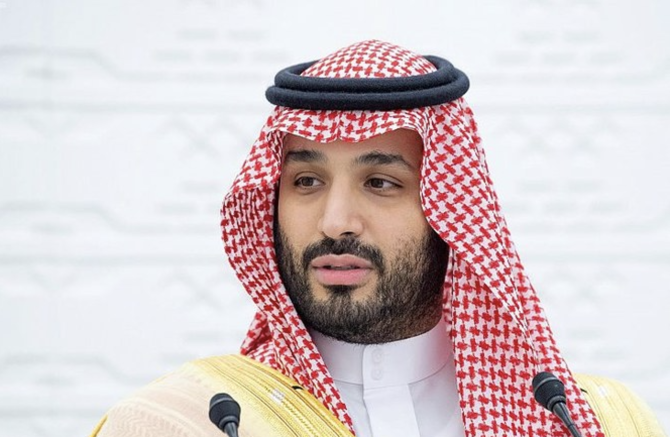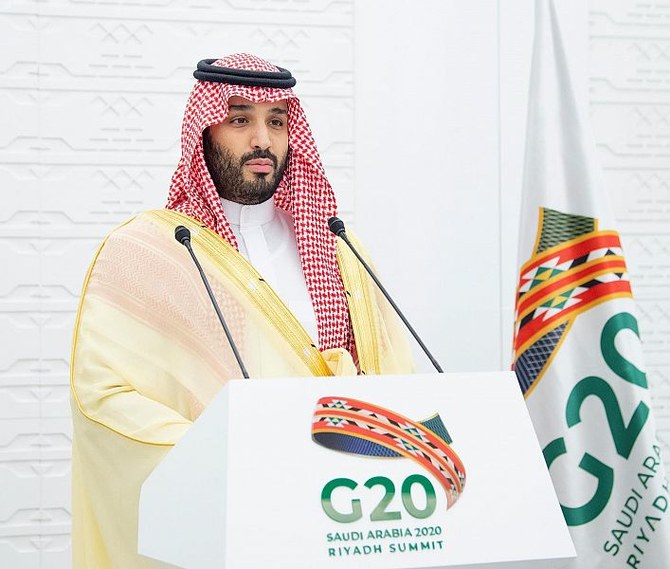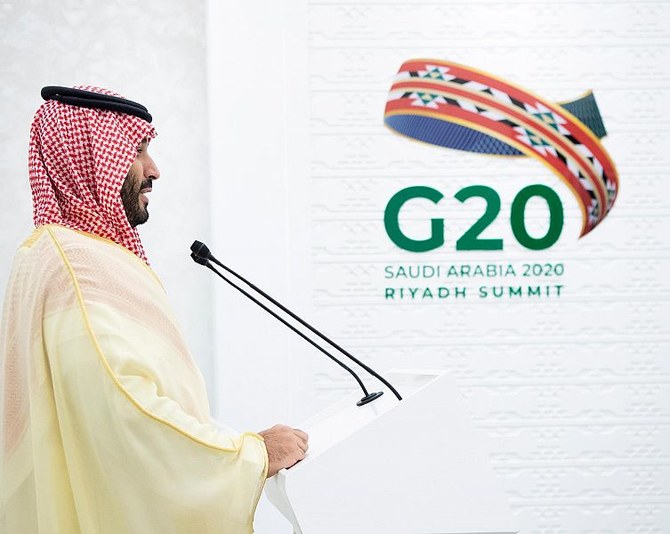RIYADH: Saudi Arabia has devoted its G20 presidency to building a stronger, more robust and sustainable world, Crown Prince Mohammed bin Salman said on Sunday.
Speaking on the final day of the G20 Summit hosted in Riyadh, the crown prince said the Kingdom would continue to support international efforts to provide vaccines and treatments for COVID-19, in a “fair and affordable manner.”
“This pandemic knows no borders,” he said. “It has reached all countries and affected, directly and indirectly, every person living on this planet, which has necessitated the activation of the pivotal role played by the G20.”
The crown prince said G20 leaders met twice throughout the Kingdom’s presidency — the first time this has happened since its formation.
An extraordinary meeting in March, as COVID-19 swept around the world, adopted “unprecedented measures and coordinated actions” to act as a foundation for global recovery, he said.
Speaking on behalf of King Salman, chair of this year’s summit, the crown prince thanked heads of states, international organizations, the business community and civil societies who contributed throughout the Kingdom’s presidency.
“We stand today at the end of an exceptional year in which we had the privilege and responsibility of the G20 presidency,” he said. “Since the beginning of this year, we set one goal, ‘Realizing Opportunities of the 21st Century For All,’ which includes themes such as: empowering people, safeguarding the planet, and shaping new frontiers.”
He added that these themes are now more relevant than ever, in light of the pandemic.
The crown prince said Saudi Arabia contributed $500 million to the $21 billion pledged by G20 countries after the outbreak.
The crown prince said G20 countries “injected over $11 trillion into the global economy to support businesses and protect individuals’ livelihoods.”
They provided emergency support to vulnerable, emerging or low income countries to help fight the pandemic in the form of debt relief worth more than $14 billion.
Aside from the coronavirus pandemic, the G20 endorsed a platform to reduce carbon emissions and ensure cleaner, affordable and more sustainable energy, he added.
He said that they adopted the Riyadh Initiative on the Future of the World Trade Organization (WTO), which would provide support toward trade reforms, as well as “efforts to empower women and youth through quality education and financial inclusion.”
“It has been an exceptional challenge but an absolute honor to hold the G20 Presidency during this trying year,” the crown prince said.






























